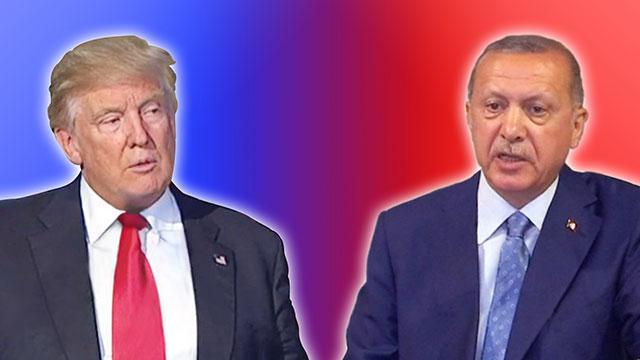What is the "Turkey Shock”?
The situation can best be understood by briefly reviewing what’s happening in Ankara. Turkey has been suffering from greater than 10 percent inflation. The country also has high levels of foreign-currency debt that’s leading to increasing borrowing costs.
On top of that, Donald Trump recently threw another wrench in the country's economic gears, one that has had international repercussions. The US President had been expressing frustration over an American pastor detained in Turkey, and this frustration culminated in Trump announcing he would double tariffs on Turkish steel and aluminum. Now, Turkish steel will see a 50 percent-tariff, and that's led US companies to call up their Turkish suppliers and cancel orders.
Global markets responded immediately. Stocks plunged in Tokyo, New York, Asia, and throughout Europe. The Turkish Lira fell 20% in just one day. Investors poured into the Japanese yen as a relatively safe asset, meanwhile other Asian currencies were widely sold.
Turkish President Recep Tayyip Erdogan’s response has only aggravated the country’s currency and debt crisis. The central bank needs to raise its interest rates to fight the rapid currency depreciation and end the high inflation. But Erdogan is fiercely opposed to the move. He’s even attempting to take more direct control of the central bank, fueling worries from overseas investors.

Why are Turkey's troubles becoming global concerns?
Experts say there are 3 key factors that could make Turkey's problems global ones. One issue is possible spillover effects for the European economy. The European Central Bank has expressed concern over exposure to Turkey, especially for Spanish, French and Italian banks. Data shows that Spanish banks are owed more than 80 billion dollars from Turkish borrowers. Erdogan's refusal to seek support from the International Monetary Fund is not helping the situation.
Investors in other countries are also worried about emerging economies that share common symptoms with Turkey. They include Argentina, which has been suffering from a currency crisis, and Asian economies such as Indonesia and the Philippines, which have excessive foreign currency debt. If capital outflows from these countries accelerate, that could severely hurt or dampen growth in Asia.
The third factor making this a global problem is actually not directly related to the Turkish crisis. Investors are becoming more worried about China as it faces a trade row with the Trump administration. According to economists at Mizuho Research Institute, China could fare far worse than the US if the trade row continues. Their simulation shows that if bilateral trade drops by 20%, China's Gross Domestic Product will worsen by 3%... triple the damage of what the US will suffer. And many analysts feel that it's no coincidence that Chinese officials announced they will send a trade delegation to the US in late August to resume talks amid the "Turkish Shock".

What could be possible spillover effects for Japan?
Japan invests more in Turkey than any other Asian economy, with companies like Toyota Motor and Honda Motor having production lines in the country. Still, the amount is much smaller compared to funds invested by Europe and the US. Therefore, the direct impact of the Turkish crisis may be limited.
But there are still reasons to stay alert. A rise in the Japanese yen stemming from mounting concerns over a global contagion may dampen exports. A slowdown in China and other Asian countries would also deal a blow to the Japanese economy.
The Turkish currency has regained ground after Qatar announced 15 billion dollars in support for Turkey. But the problem is far from over. Turkey is currently celebrating Bayram, a national holiday. The festive mood may not continue though, as Erdogan slaps counter tariffs on the US and promotes boycotts of US products. Amid the turmoil, two major credit rating agencies have downgraded Turkey on increased uncertainty over the country’s economy.
Is the Turkish crisis a wake-up call, indicating another looming global crisis? As international cooperation becomes increasingly difficult amid global and political tensions, Japan may not be able to just stay on the sidelines. It may have to step up efforts to smooth conflicts with the US and the rest of the world.

